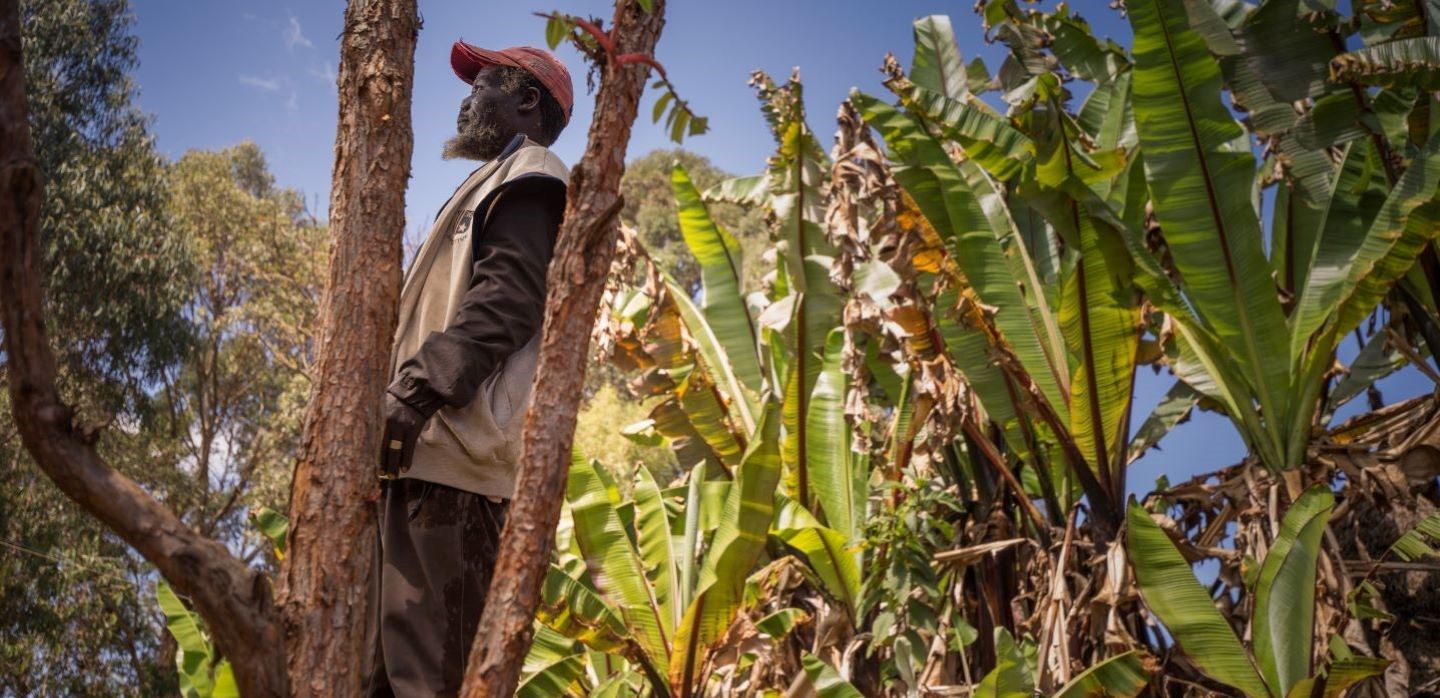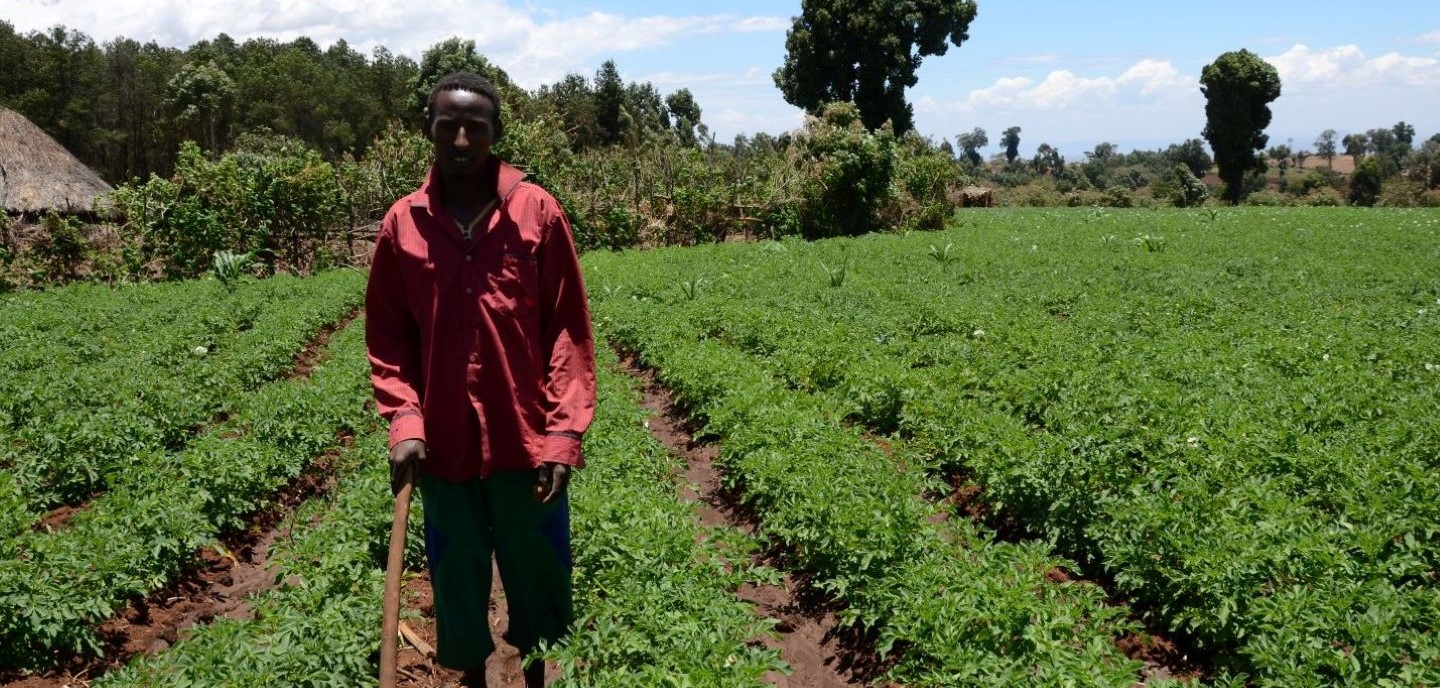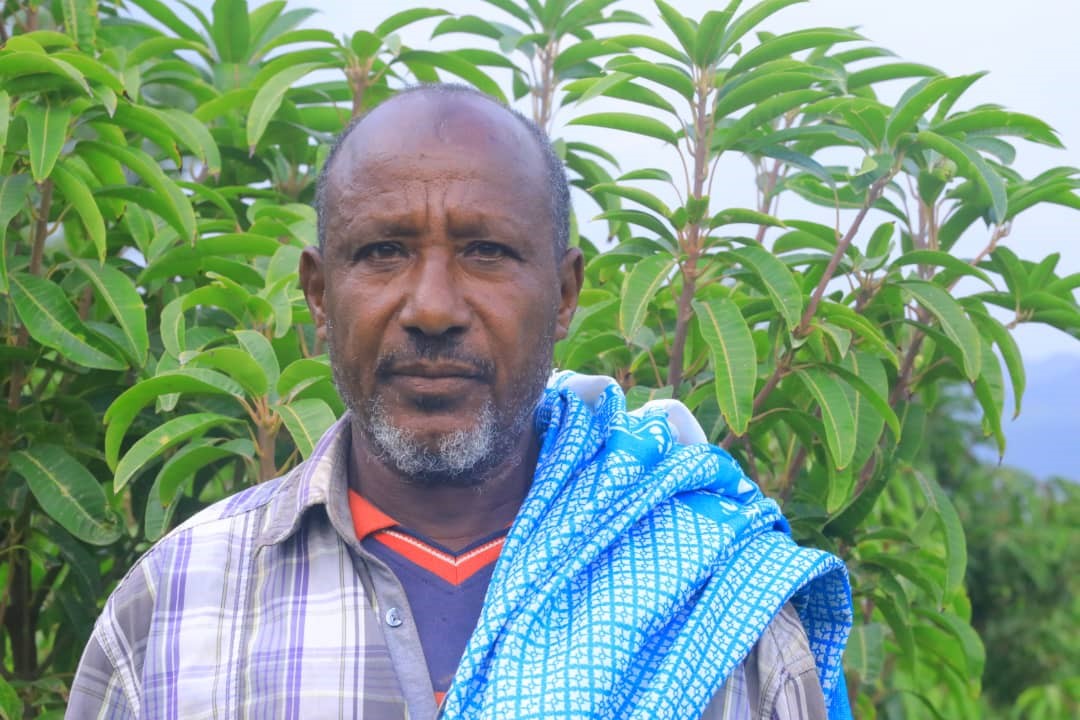There’s a whole world beneath our feet. Farmers in Ethiopia are protecting it with sustainable soil practices
IFAD Asset Request Portlet
Asset Publisher
There’s a whole world beneath our feet.
Estimated reading time: 2 minutes
Small-scale farmers in Ethiopia face a myriad of challenges, from climate change to conflict. But one of the biggest threats to crop production, livelihoods and food security is actually small in size: pests.
Chemical pesticides are a swift way to kill pests, but they remain in the soil and environment for decades, threatening the ecological system upon which food production depends.
Sometimes a quick fix can do more harm than good.
This is why local farmers in Amhara’s Kalu District are using biochemical pesticides to make sure infestations become a thing of the past, without harming the environment and jeopardizing their futures.

Farmers have partnered with IFAD’s Participatory Small-Scale Irrigation Development Programme II (PASIDP II) and local authorities to develop integrated pest management (IPM).
IPM combines biological management strategies, cultural practices and selected biochemical pesticides that support healthy crops while minimizing risks.
What’s in the soil?
Soil isn’t just the outermost layer of our planet, it is also heaving with organic matter. A single gram of soil can contain a billion bacterial cells, hundreds of metres of fungal hyphae and thousands of different species, all of which constitute soil organisms.
More importantly, healthy soil is key to the world’s food security. Some 99 per cent of the world’s food supply comes from land-based production, with approximately 50 to 70 per cent of land globally devoted to agriculture. The earth beneath our feet is the basis for plant growth and keeping it chemical-free is paramount to its wellbeing, as well as our own.
What’s more, soil supports vegetation and animal biodiversity, including wildlife and livestock. It is also a factor in how rainwater is distributed, and therefore plays a role in the availability of water supply, particularly in rural areas like Kalu.
Heal the earth
After more than a decade of using harmful chemicals, in 2017, farmers began restoring their soil by implementing environmentally-friendly pest management treatments they learned about at the PASIDP II-supported Integrated Pest Management Field School (IPM-FFS).
Now, these farmers use local plants and animal products to develop biochemicals, which are less harmful to the environment than synthetic ones. After being tested on small plots, the biochemicals are then distributed to local farmers, along with training on how to safely handle them.
Not only are the soil and environment better protected, but results show increased productivity, market competitiveness and incomes.

Previously, Seid Adem Endris’ wheat was being consumed by tiny sap-sucking Aphids. Now, with the biopesticides provided by the team at the IPM-FFS, they are cured. “After the application, the crop became healthy and very green,” says Endris, whose yield has since increased by 2 quintals (200 Kilograms).
Around 60 farmers in Kalu District have improved their production and reduced their costs thanks to the IPM-FFS. Today, these practices are being shared and scaled across the PASIDP II programme areas.
Less synthetic pesticides means better crop health and long-term benefits for the farms, the environment and the world that lies beneath our feet, inside the soil.
Publication date: 05 December 2022